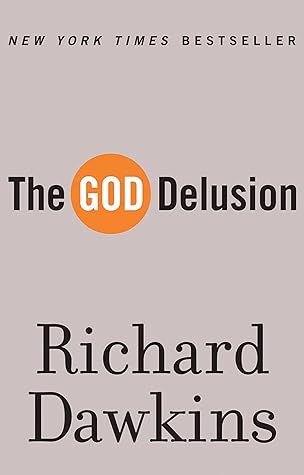More on this book
Community
Kindle Notes & Highlights
Carl Sagan, in Pale Blue Dot, wrote: How is it that hardly any major religion has looked at science and concluded, 'This is better than we thought! The Universe is much bigger than our prophets said, grander, more subtle, more elegant'? Instead they say, 'No, no, no! My god is a little god, and I want him to stay that way.' A religion, old or new, that stressed the magnificence of the Universe as revealed by modern science might be able to draw forth reserves of reverence and awe hardly tapped by the conventional faiths.
pantheistic
Let's remind ourselves of the terminology. A theist believes in a supernatural intelligence who, in addition to his main work of creating the universe in the first place, is still around to oversee and influence the subsequent fate of his initial creation. In many theistic belief systems, the deity is intimately involved in human affairs. He answers prayers; forgives or punishes sins; intervenes in the world by performing miracles; frets about good and bad deeds, and knows when we do them (or even think of doing them). A deist, too, believes in a supernatural intelligence, but one whose
...more
You can't get away with saying, 'If you try to stop me from insulting homosexuals it violates my freedom of prejudice.' But you can get away with saying, 'It violates my freedom of religion.' What, when you think about it, is the difference? Yet again, religion trumps all.
Instead I shall define the God Hypothesis more defensibly: there exists a superhuman, supernatural intelligence who deliberately designed and created the universe and everything in it, including us. This book will advocate an alternative view: any creative intelligence, of sufficient complexity to design anything, comes into existence only as the end product of an extended process of gradual evolution. Creative intelligences, being evolved, necessarily arrive late in the universe, and therefore cannot be responsible for designing it. God, in the sense defined, is a delusion; and, as later
...more
Strong theist. 100 per cent probability of God. In the words of C. G. Jung, 'I do not believe, I know! Very high probability but short of 100 per cent. De facto theist. 'I cannot know for certain, but I strongly believe in God and live my life on the assumption that he is there.' Higher than 50 per cent but not very high. Technically agnostic but leaning towards theism. 'I am very uncertain, but I am inclined to believe in God.' Exactly 50 per cent. Completely impartial agnostic. 'God's existence and non-existence are exactly equiprobable.' Lower than 50 per cent but not very low. Technically
...more
Many orthodox people speak as though it were the business of sceptics to disprove received dogmas rather than of dogmatists to prove them. This is, of course, a mistake. If I were to suggest that between the Earth and Mars there is a china teapot revolving about the sun in an elliptical orbit, nobody would be able to disprove my assertion provided I were careful to add that the teapot is too small to be revealed even by our most powerful telescopes. But if I were to go on to say that, since my assertion cannot be disproved, it is intolerable presumption on the part of human reason to doubt it,
...more
Gould carried the art of bending over backwards to positively supine lengths in one of his less admired books, Rocks of Ages. There he coined the acronym NOMA for the phrase 'non-overlapping magisteria': The net, or magisterium, of science covers the empirical realm: what is the universe made of (fact) and why does it work this way (theory). The magisterium of religion extends over questions of ultimate meaning and moral value. These two magisteria do not overlap, nor do they encompass all inquiry (consider, for example, the magisterium of art and the meaning of beauty). To cite the old
...more
As Arthur C. Clarke put it, in his Third Law: 'Any sufficiently advanced technology is indistinguishable from magic.' The miracles wrought by our technology would have seemed to the ancients no less remarkable than the tales of Moses parting the waters, or Jesus walking upon them. The aliens of our SETI signal would be to us like gods, just as missionaries were treated as gods (and exploited the undeserved honour to the hilt) when they turned up in Stone Age cultures bearing guns, telescopes, matches, and almanacs predicting eclipses to the second.
Incidentally, it has not escaped the notice of logicians that omniscience and omnipotence are mutually incompatible. If God is omniscient, he must already know how he is going to intervene to change the course of history using his omnipotence. But that means he can't change his mind about his intervention, which means he is not omnipotent.
The priests of the different religious sects ... dread the advance of science as witches do the approach of daylight, and scowl on the fatal harbinger announcing the subdivision of the duperies on which they live. —THOMAS JEFFERSON
Strange is our situation here on Earth. Each of us comes for a short visit, not knowing why, yet sometimes seeming to divine a purpose. From the standpoint of daily life, however, there is one thing we do know: that man is here for the sake of other men—above all for those upon whose smiles and well-being our own happiness depends. —ALBERT EINSTEIN


